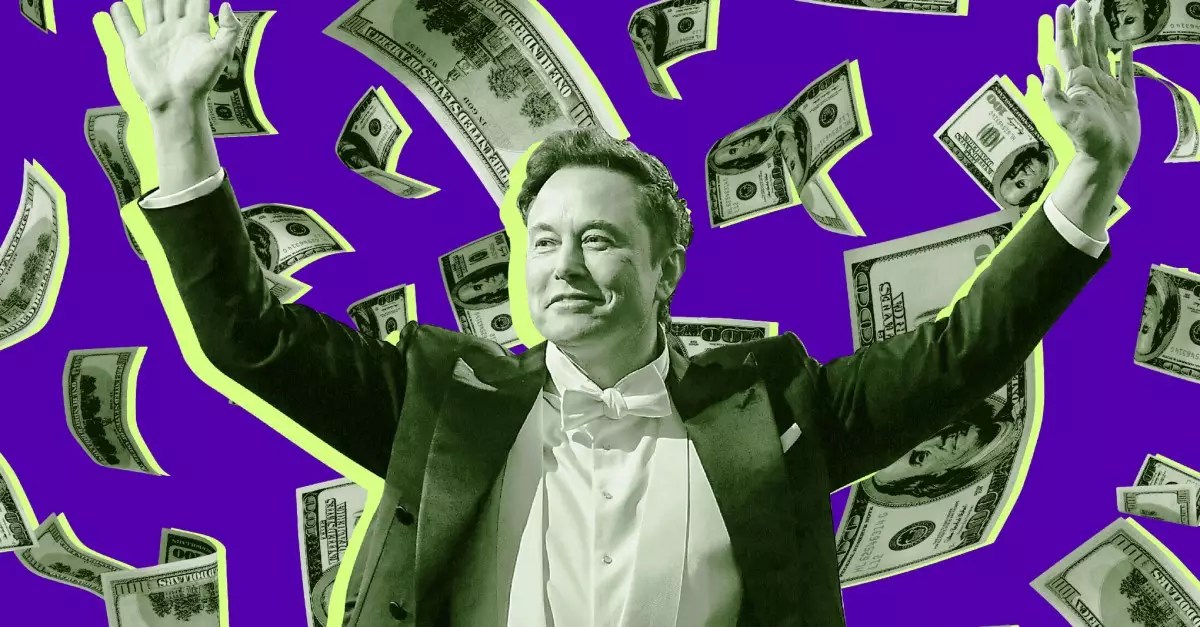In the ever-evolving landscape of artificial intelligence, few rivalries capture the public eye quite like the intense competition surrounding OpenAI. With major players vying to redefine the future of AI, recent developments have introduced new dynamics that threaten to reshape the industry. Elon Musk, a name synonymous with innovation, has rekindled his relationship with OpenAI in an unprecedented manner: by spearheading a massive financial bid to acquire the nonprofit’s core operations. This unexpected maneuver underscores both Musk’s dissatisfaction with the current direction of OpenAI and the larger implications for the AI sector.
Musk’s Ambitious Bid
On the heels of OpenAI’s strategic shift towards profit-making, Musk’s proposed bid of $97.4 billion, as reported by The Wall Street Journal, signifies a calculated risk taken at a critical juncture. Musk leads a coalition that includes his AI venture, xAI, as well as influential figures from venture capital and entertainment. This group seeks to reclaim what they perceive as a misalignment with OpenAI’s foundational goals of promoting safe and accessible AI technologies. Musk’s announcement, characterized by a promise to reinstate OpenAI’s “open-source, safety-focused” mission, is an implicit challenge to both existing leadership and the competitive landscape. It raises questions about the ethical ramifications of AI operation under profit-driven motives.
As Musk makes his bold move, the context surrounding OpenAI is equally telling. Under CEO Sam Altman’s leadership, OpenAI is caught in a delicate balancing act—overseeing substantial investments, managing a $340 billion valuation, and embarking on a $500 billion AI infrastructure initiative. The potential acquisition bid poses numerous complications for these ongoing projects. Altman must not only navigate the intricacies of Musk’s offer but also contend with existing contracts such as negotiations with Microsoft, which could redefine corporate power dynamics within the AI space.
The crux of this confrontation ultimately revolves around ethical considerations in AI development. Musk’s accusations point to a perceived deviation from OpenAI’s foundational intent, fueling an ongoing debate about transparency and accountability in AI companies. This tension raises fundamental questions about AI’s broader implications for society. As tech giants increasingly prioritize profit in their advancement strategies, the necessity for ethical oversight becomes more pressing. Musk’s call to action may resonate with those advocating for a more equitable and secure technological advancement, yet the practicalities of restoring OpenAI to its original framework are fraught with challenges.
As Silicon Valley grapples with these developments, it is evident that the future of AI innovation hangs in the balance. The rivalry between Musk and Altman represents more than just individual ambitions; it mirrors wider concerns regarding the trajectory of artificial intelligence, the need for ethical governance, and the responsibility actors in this space hold to the public. Opportunities for collaboration may emerge as the industry navigates a rapidly changing environment, suggesting that strategic partnerships may be the key to fostering a safe and revolutionary AI ecosystem. Ultimately, the unfolding rivalry serves as a crucial reminder of the stakes involved in the great AI race, revealing the challenges and potential benefits of responsible AI advancement.


Leave a Reply